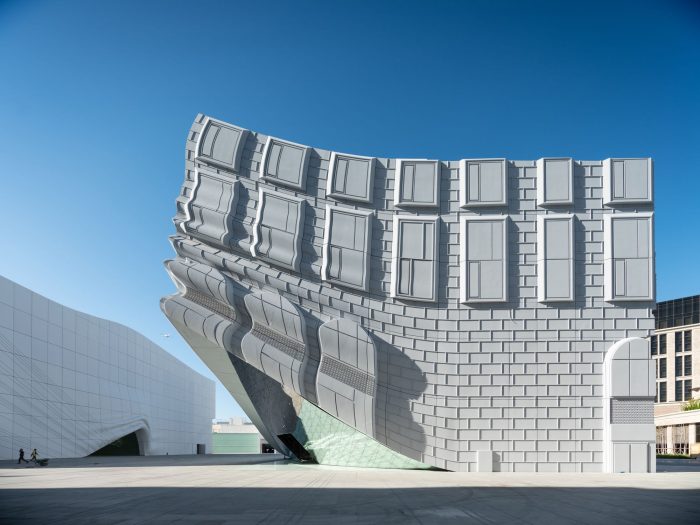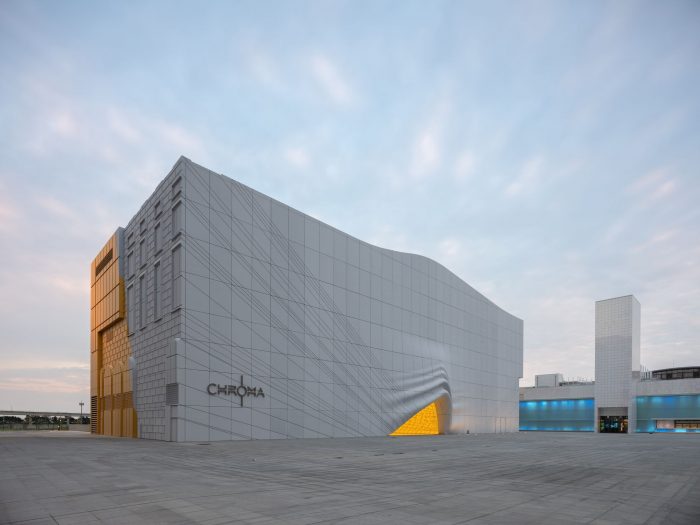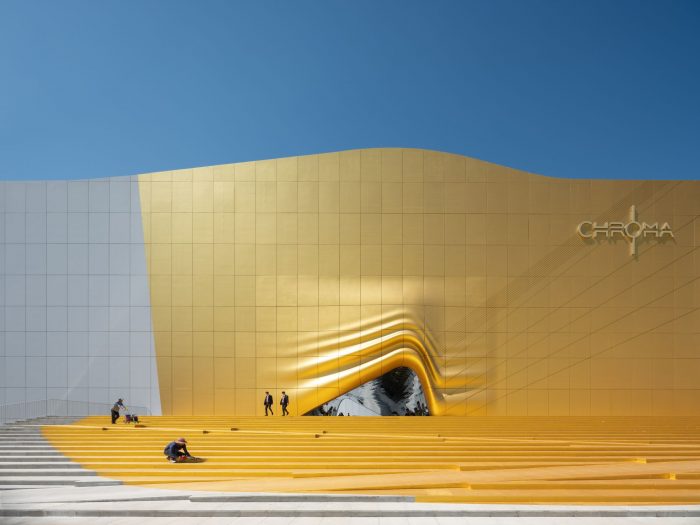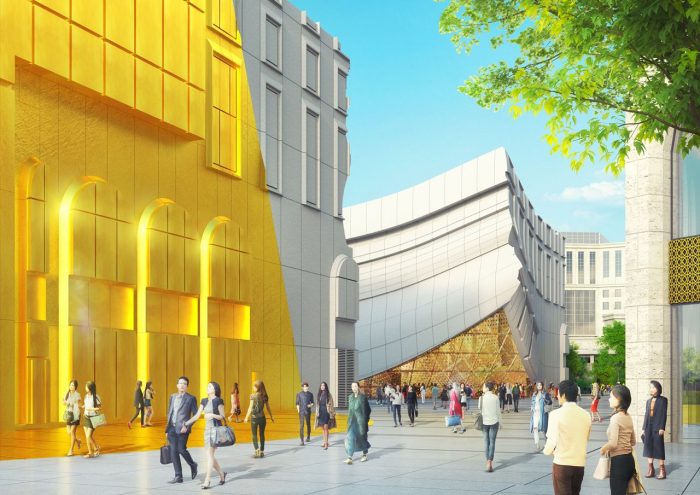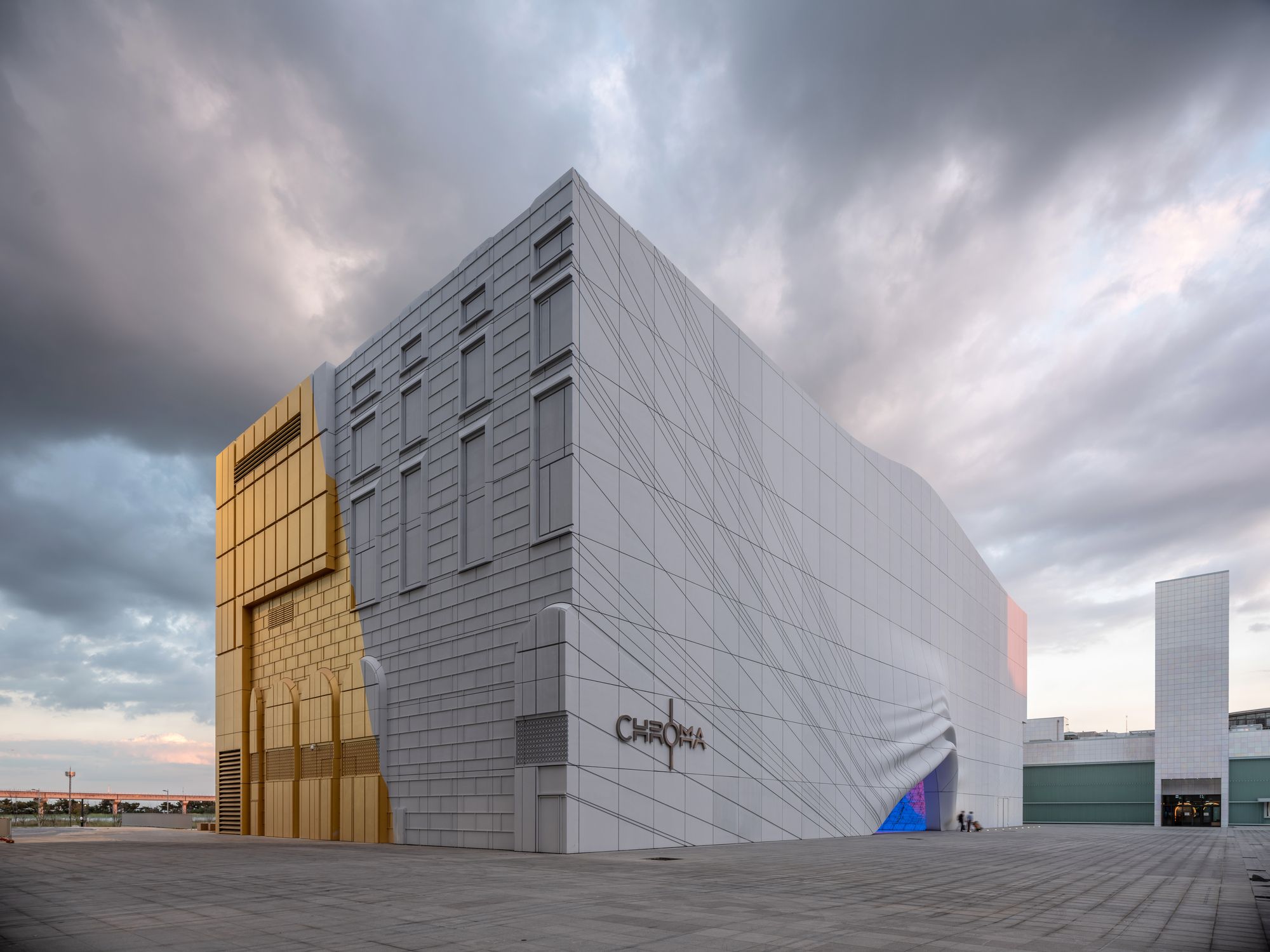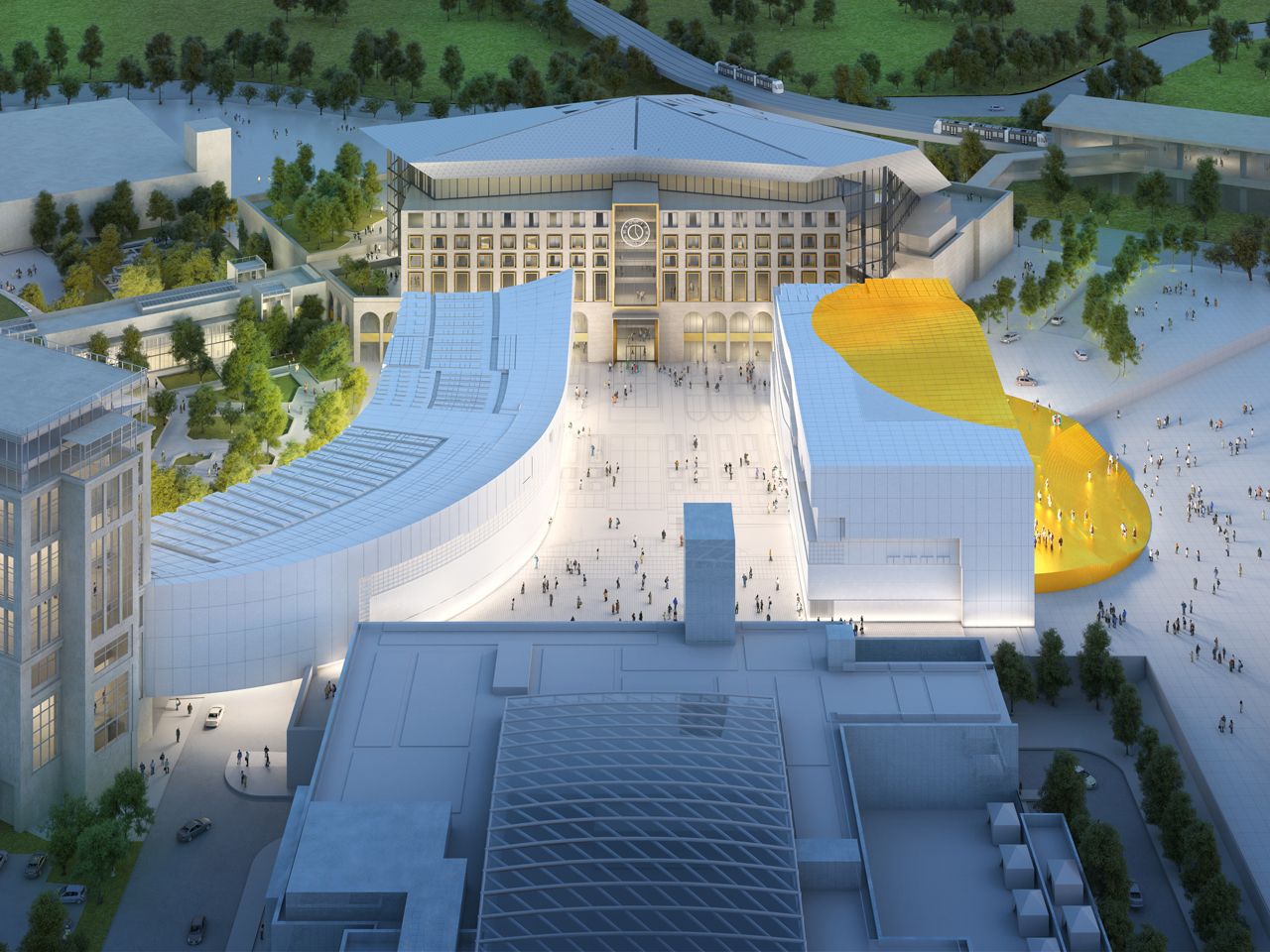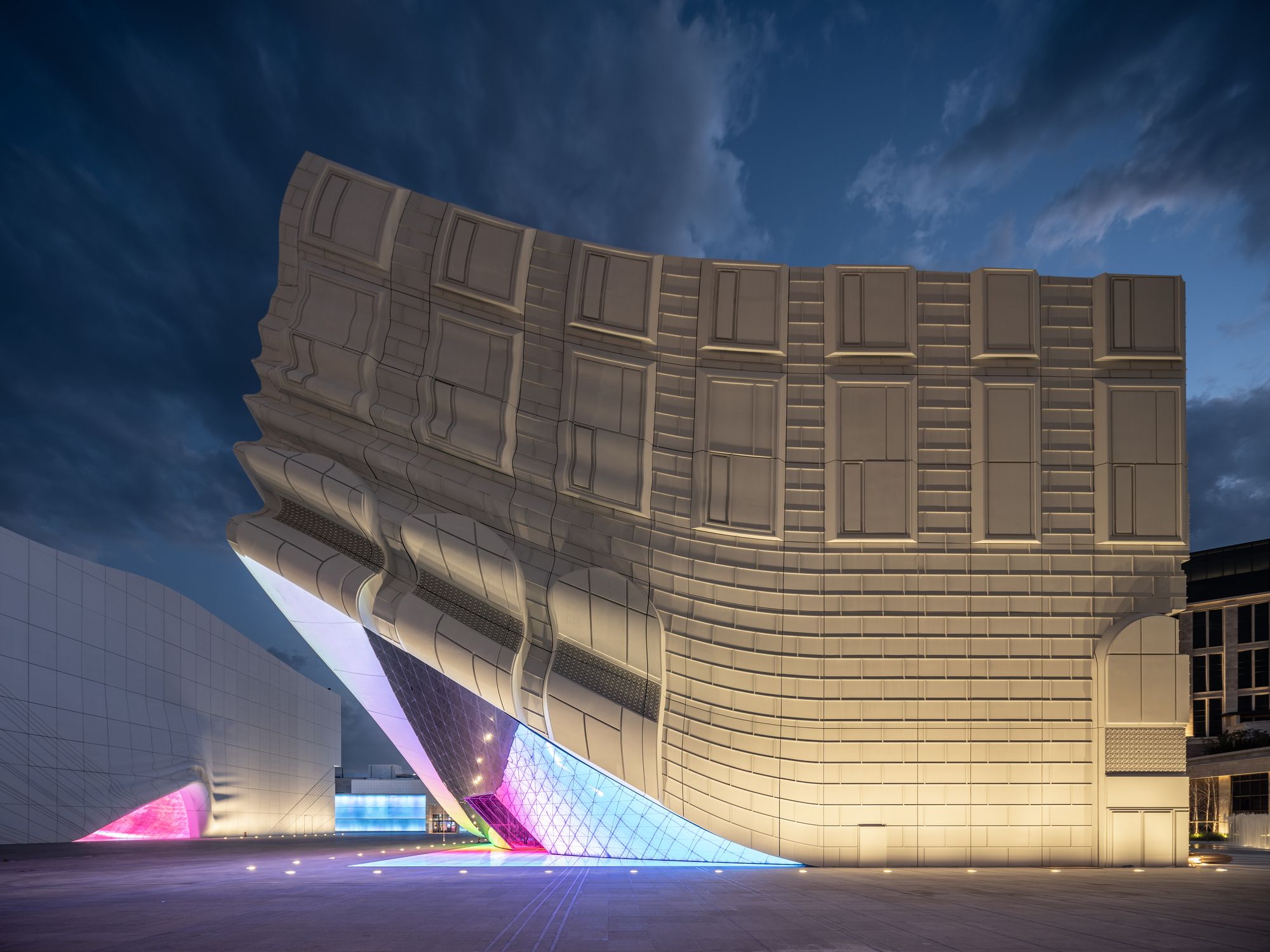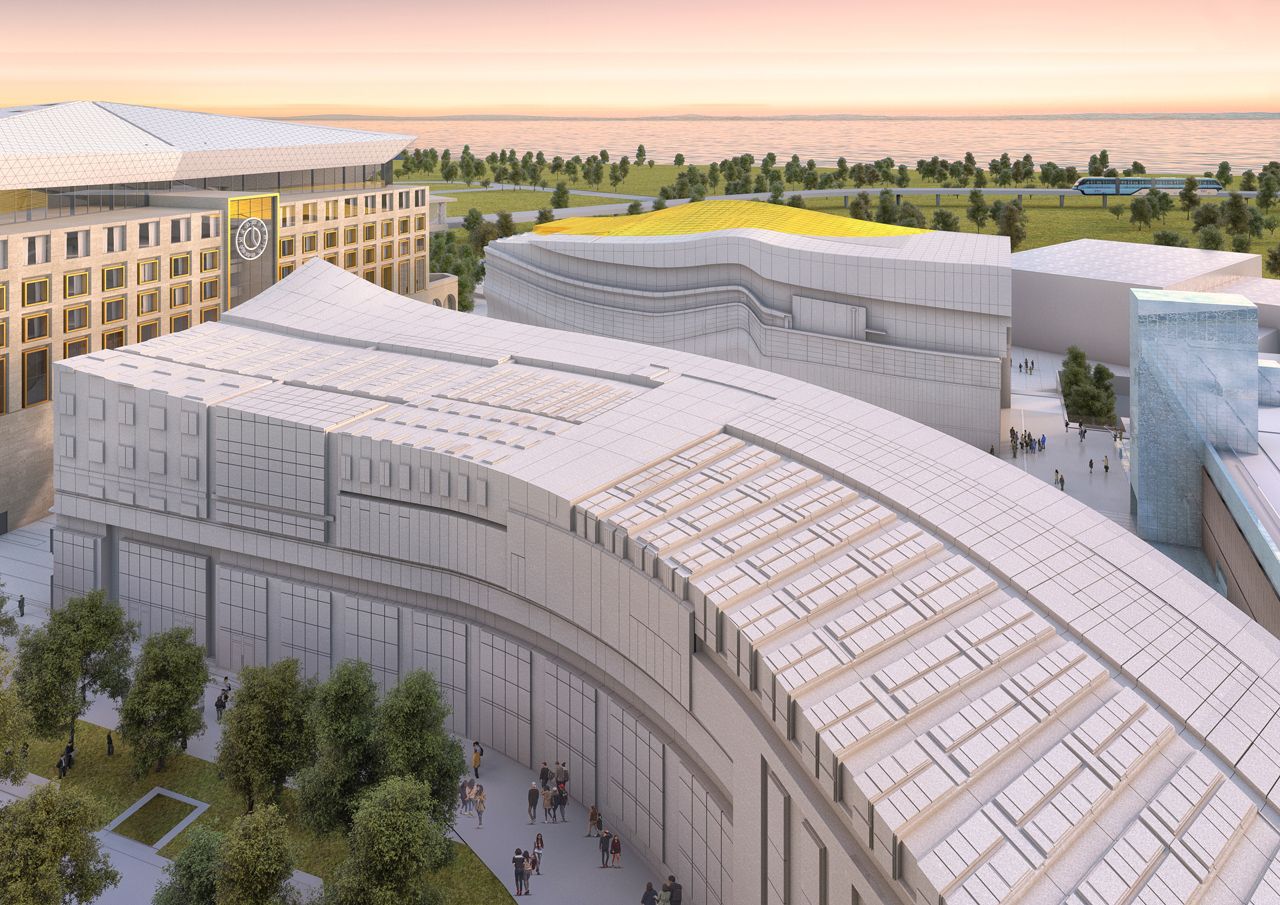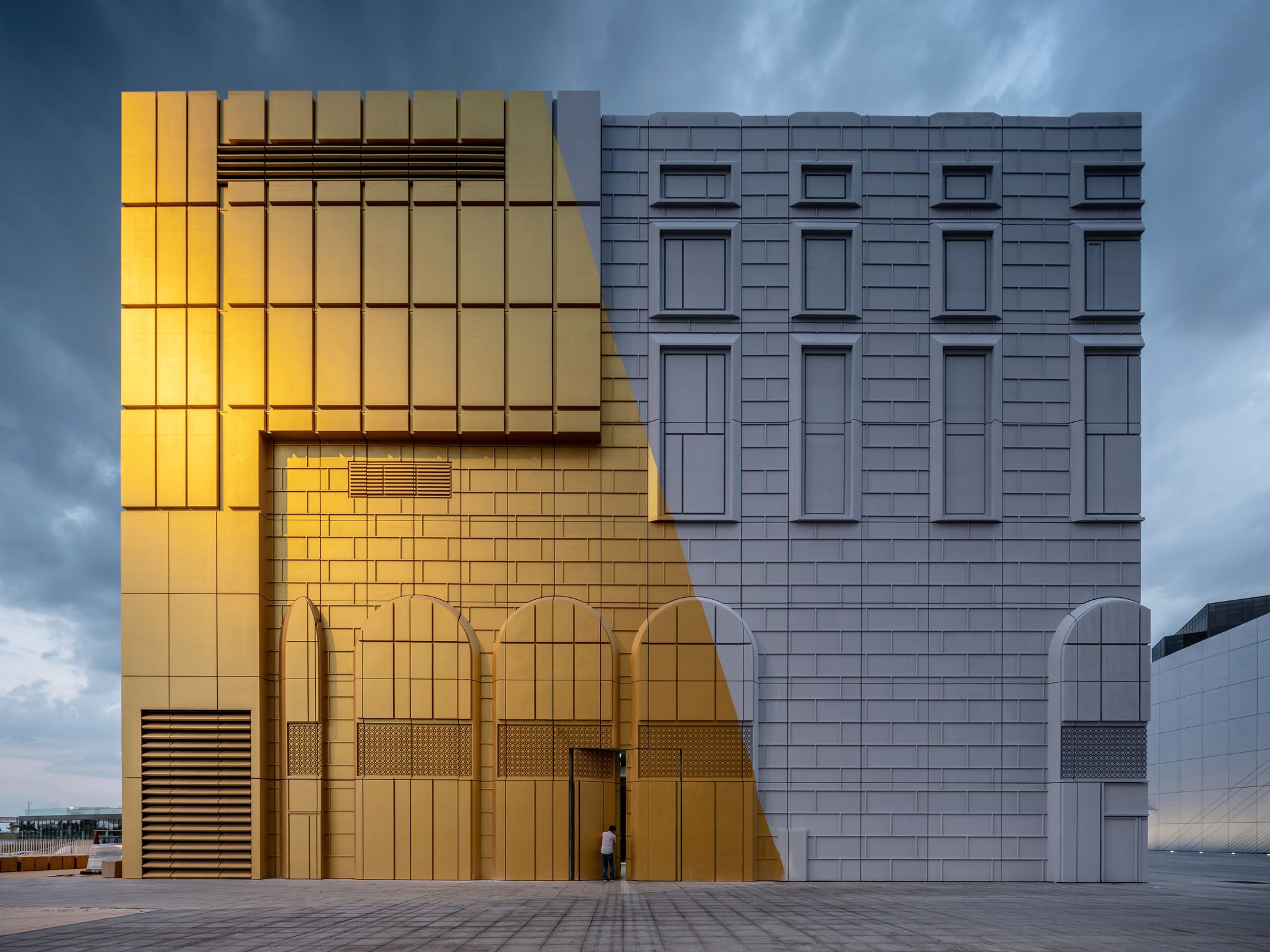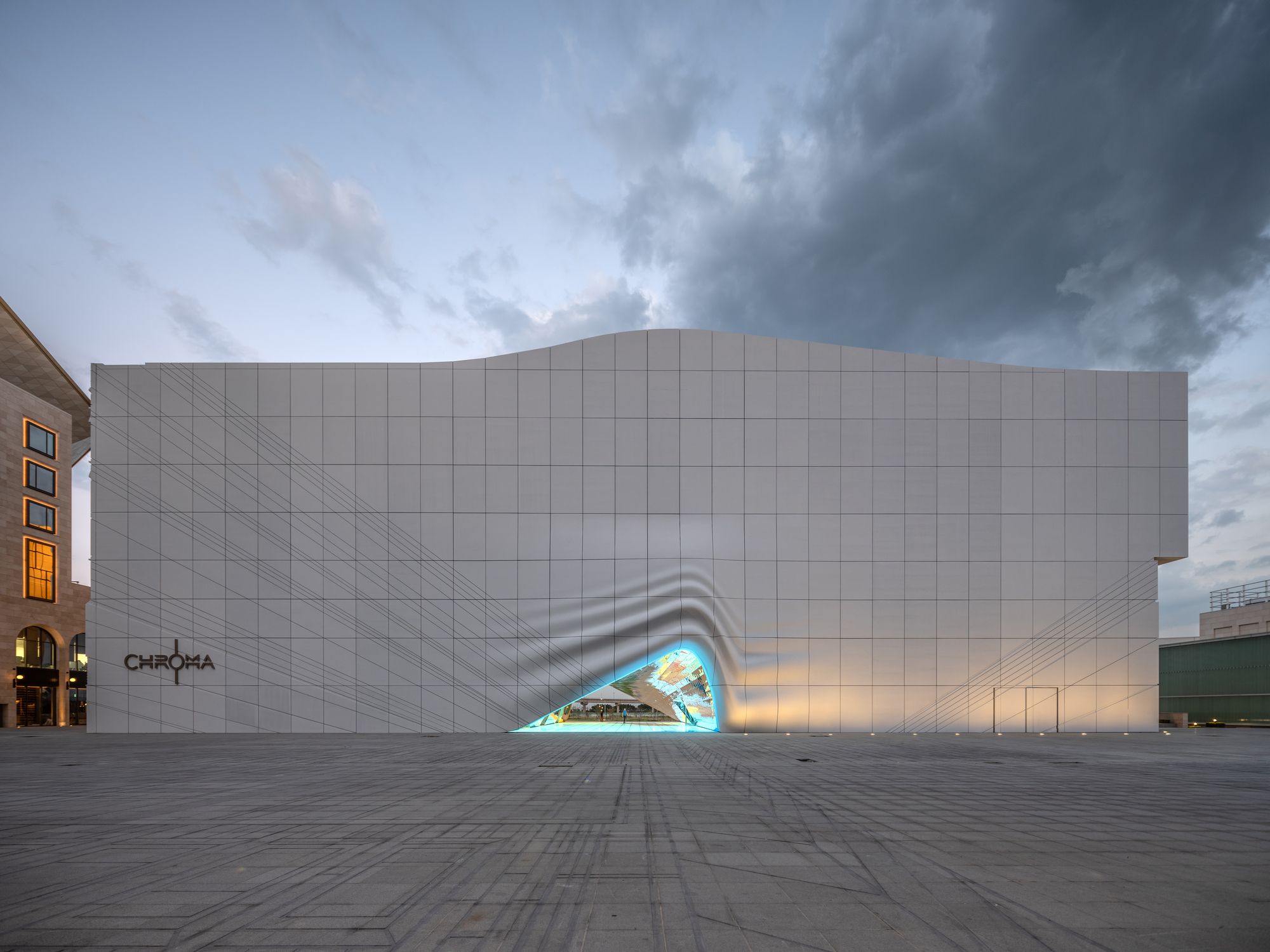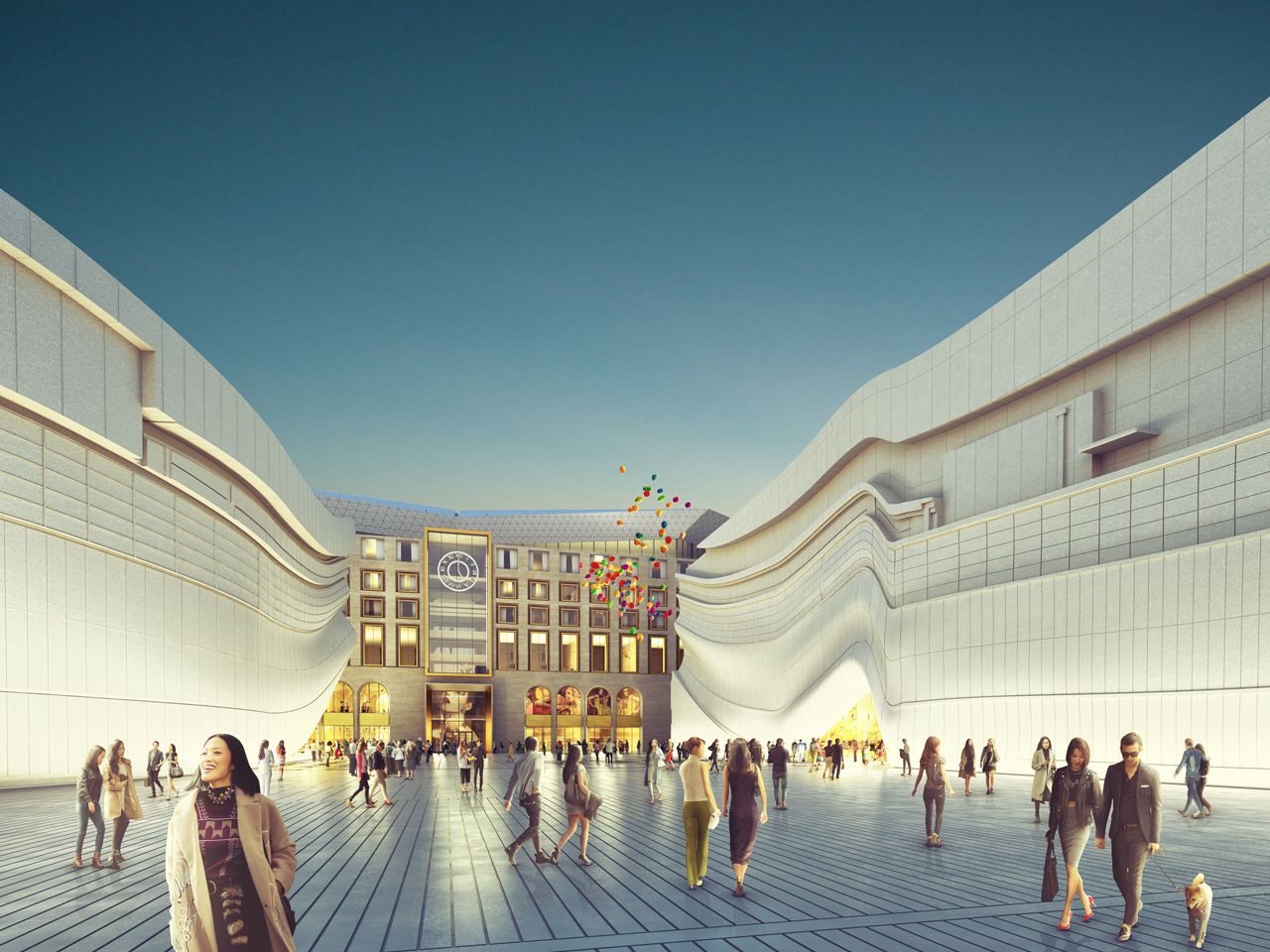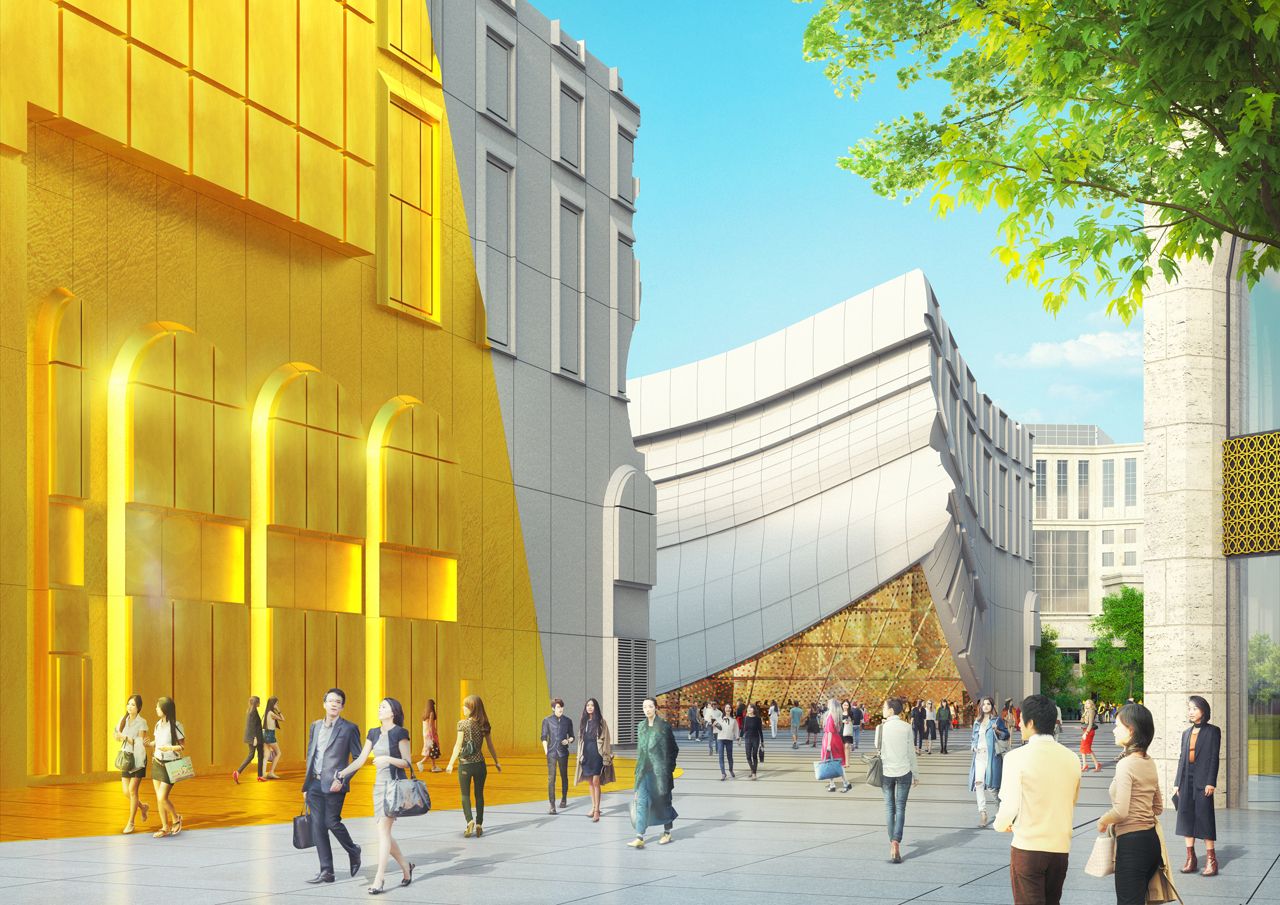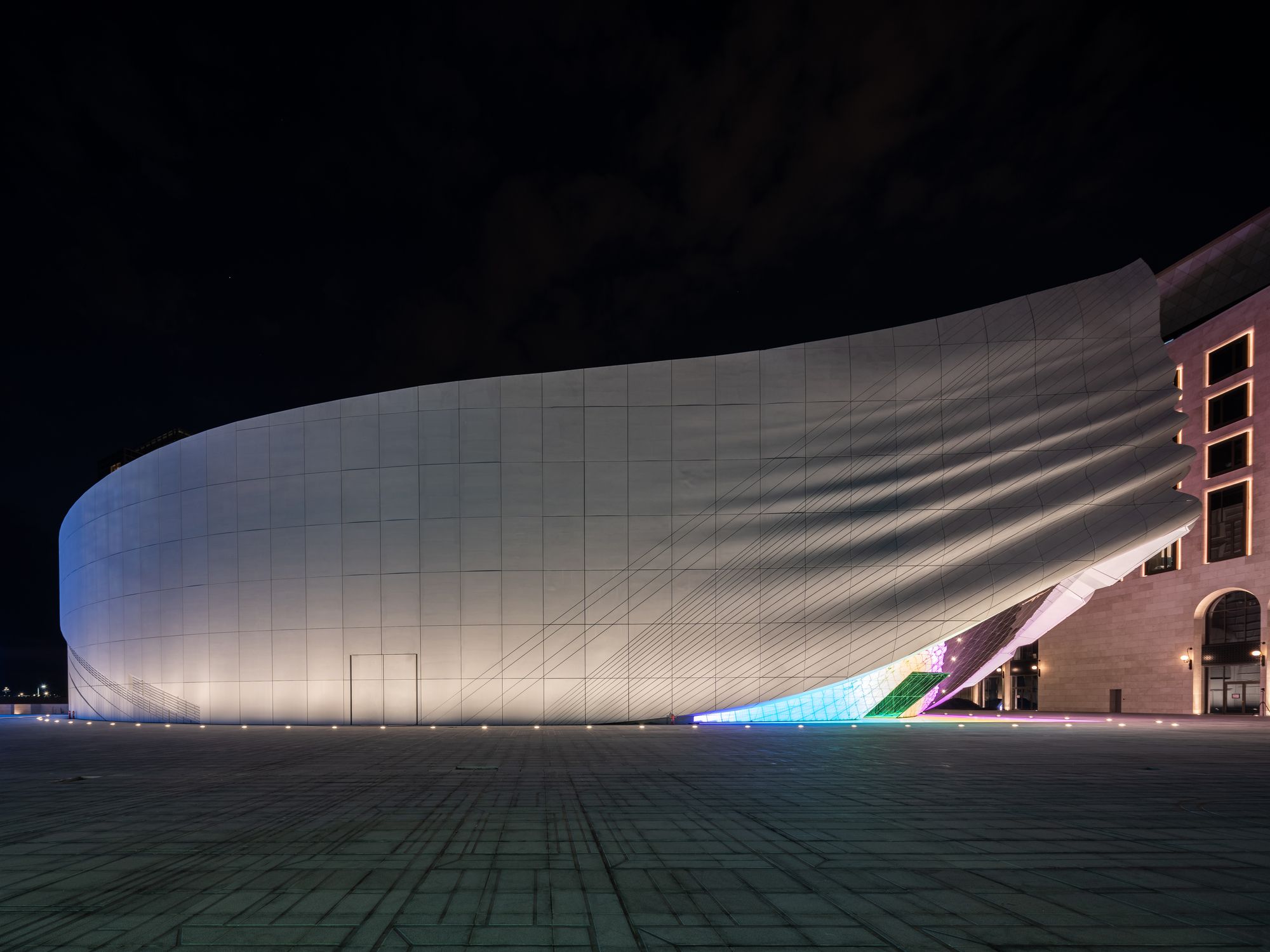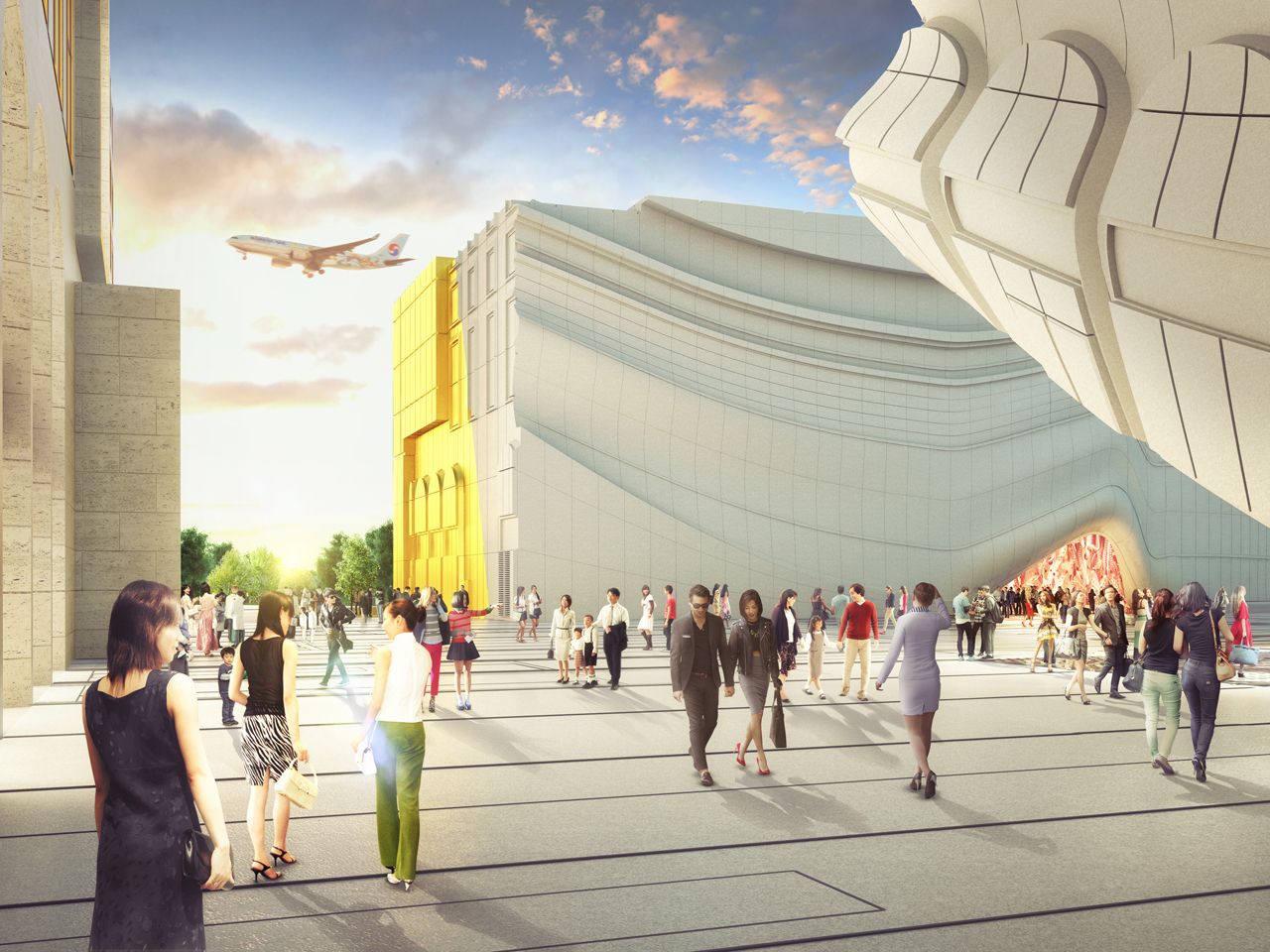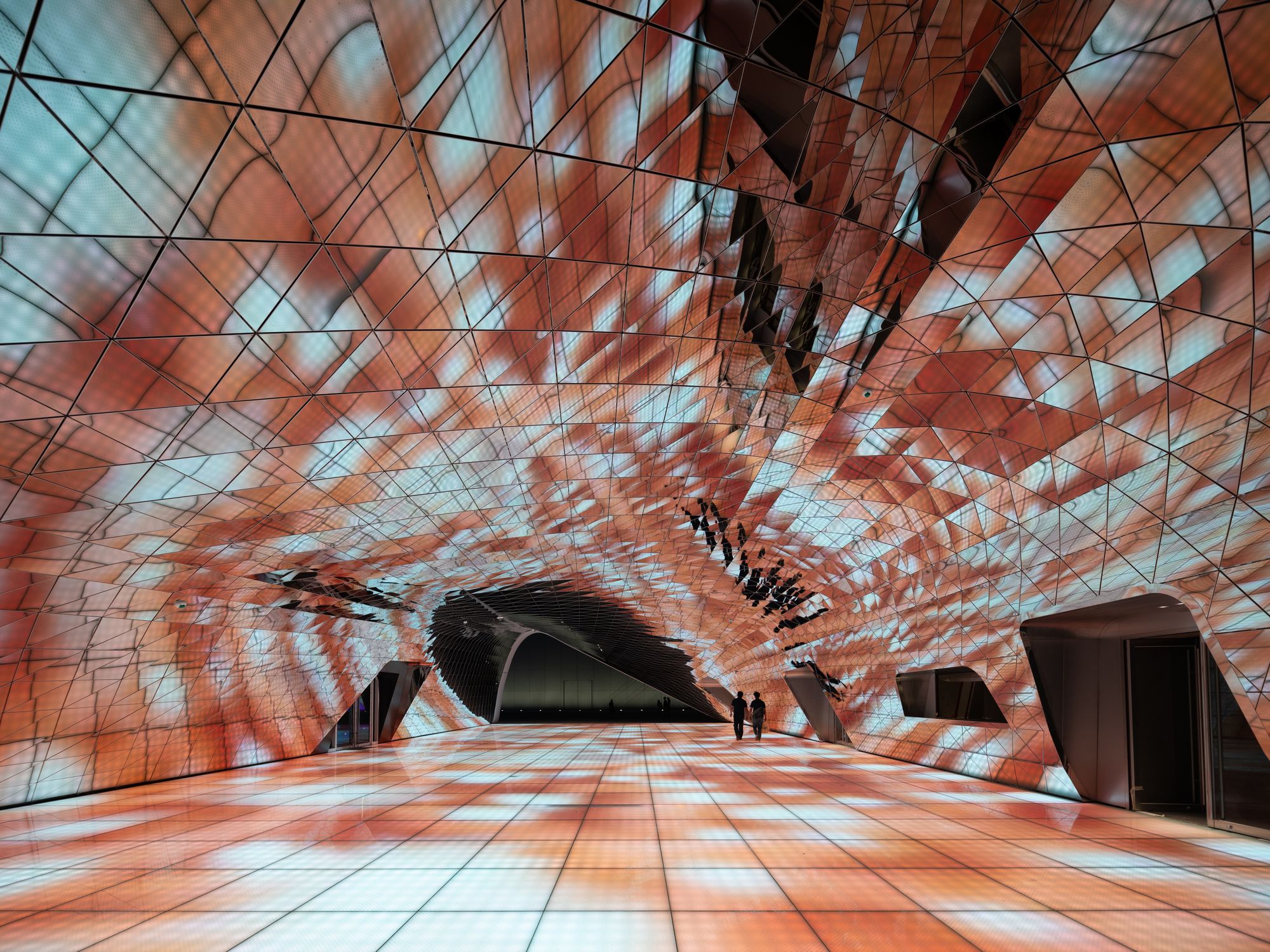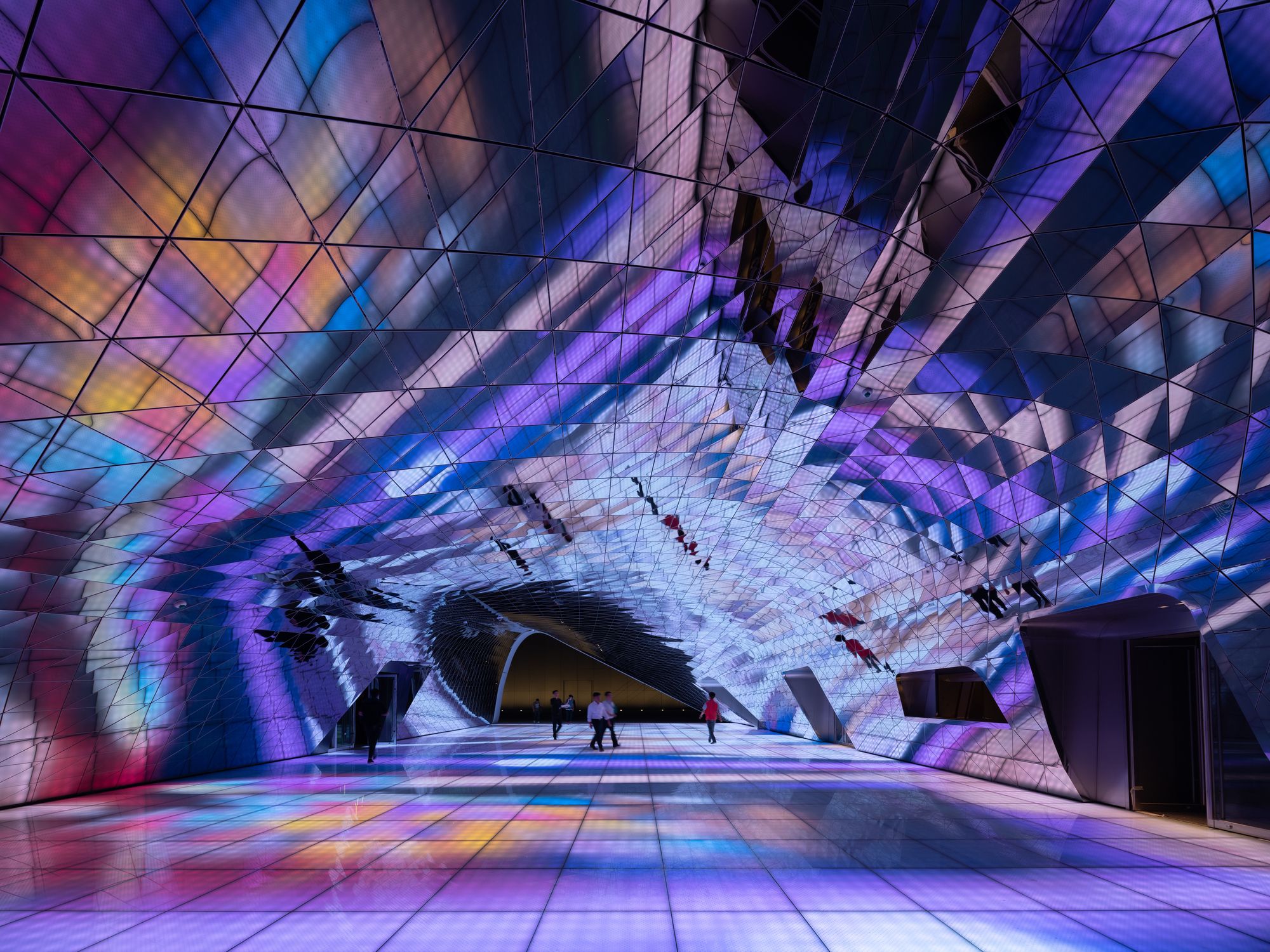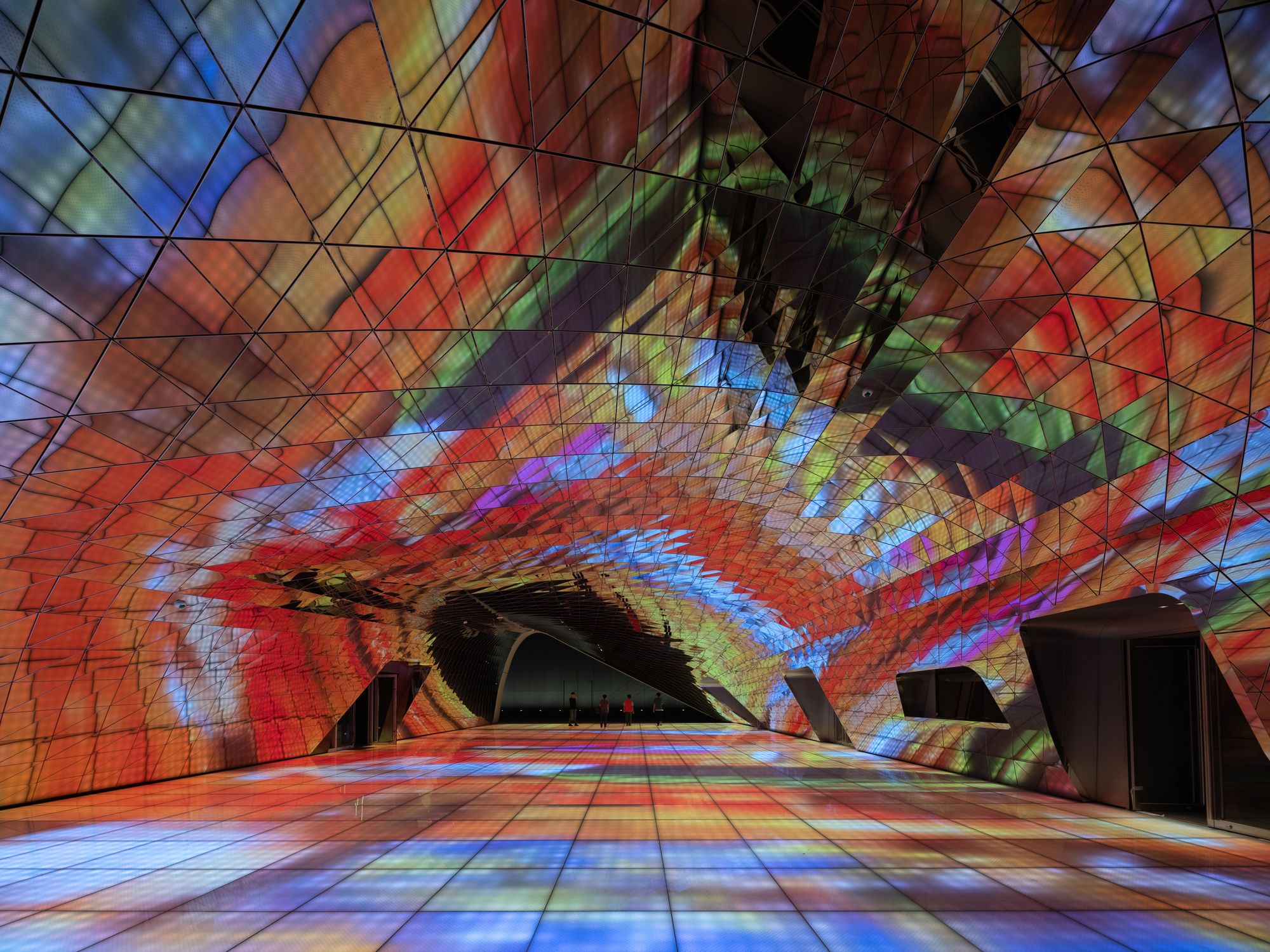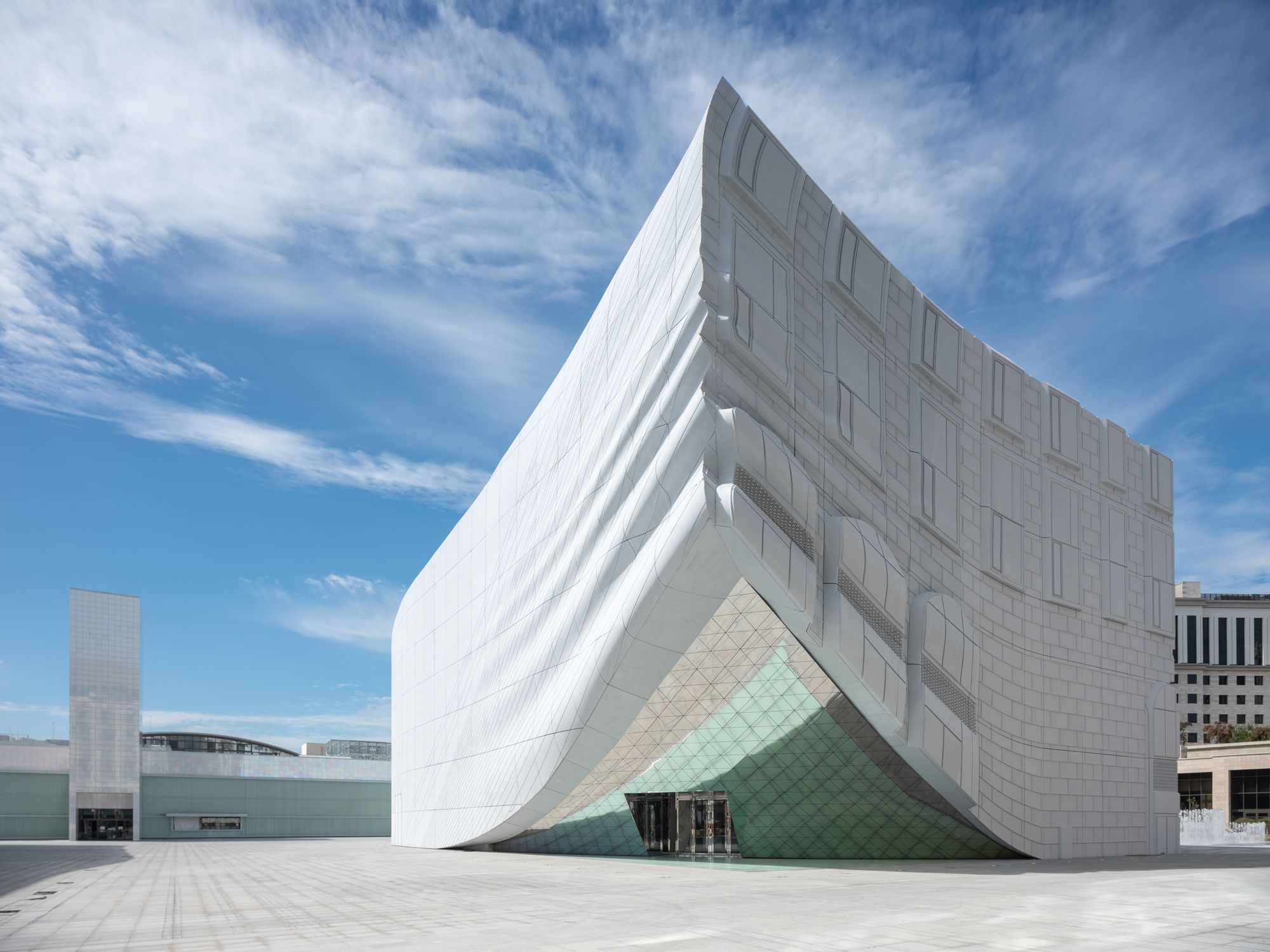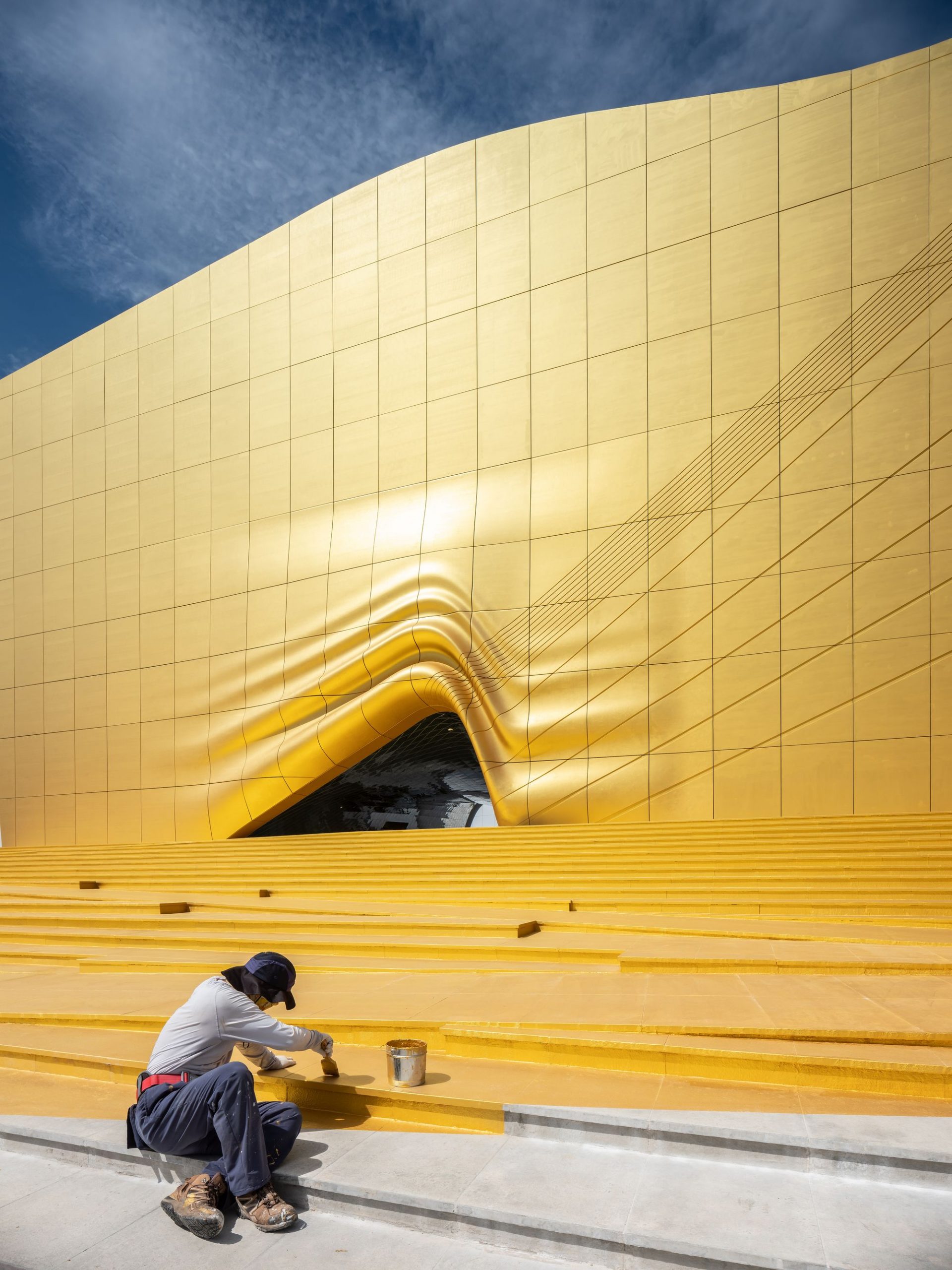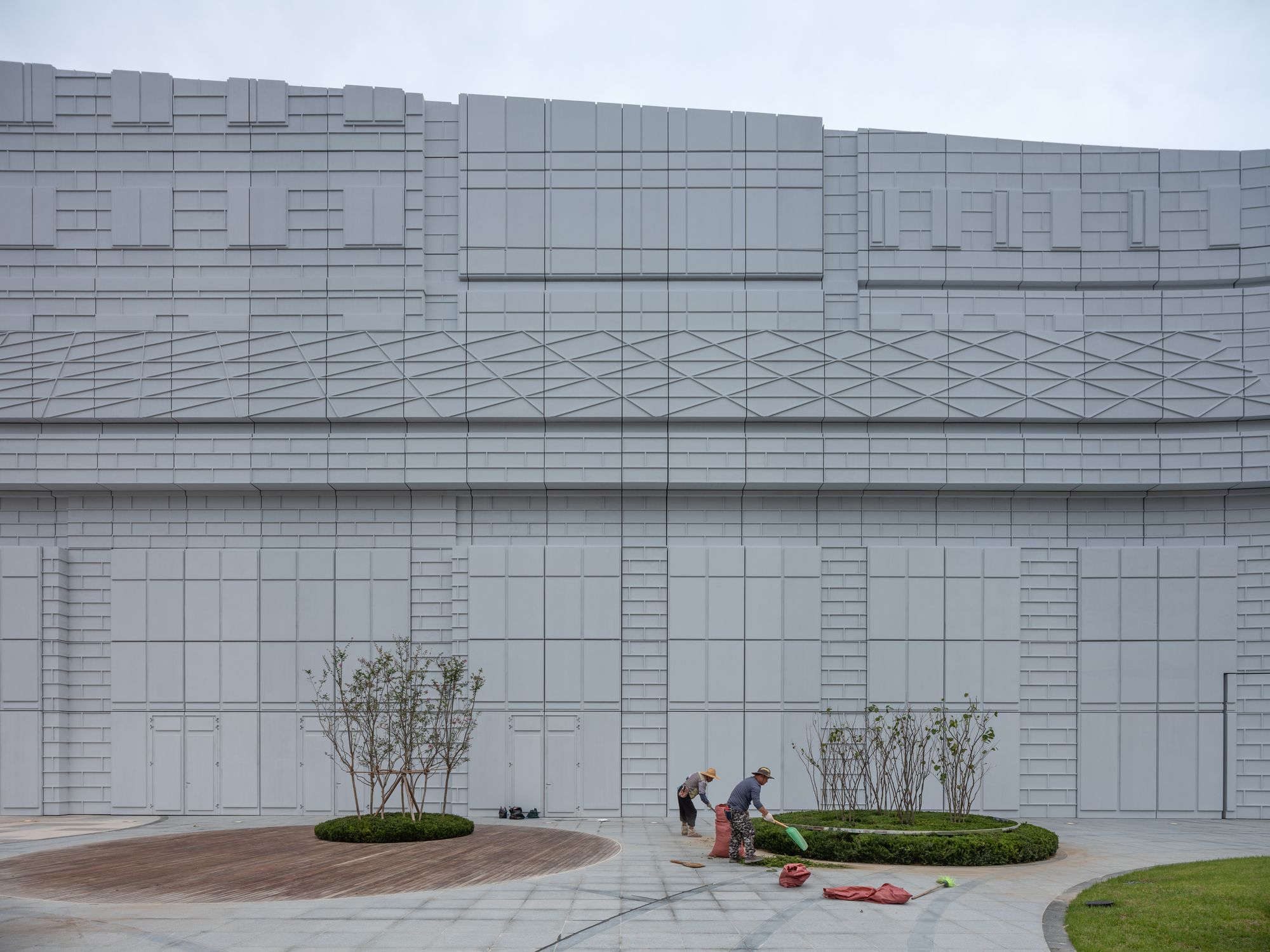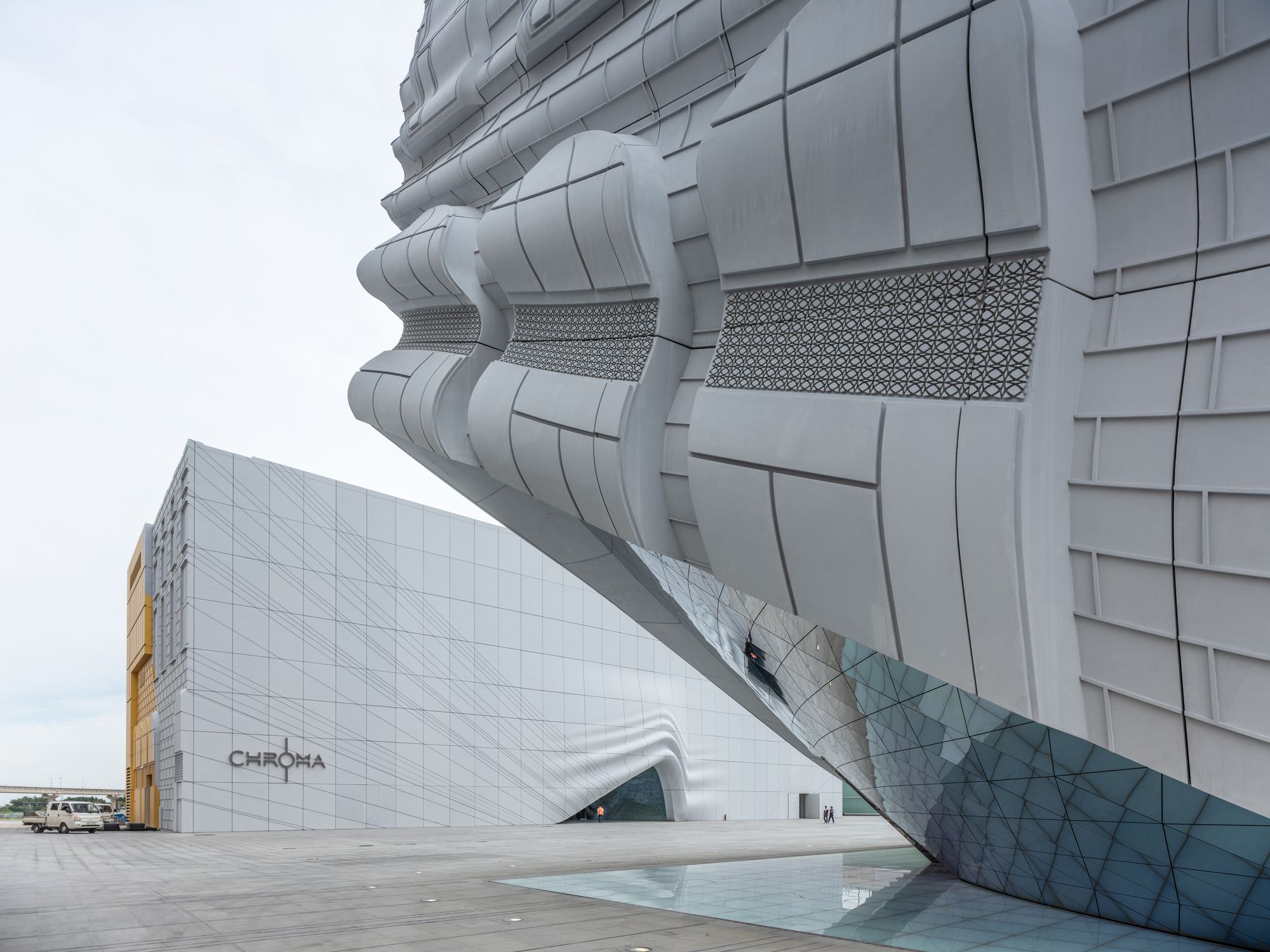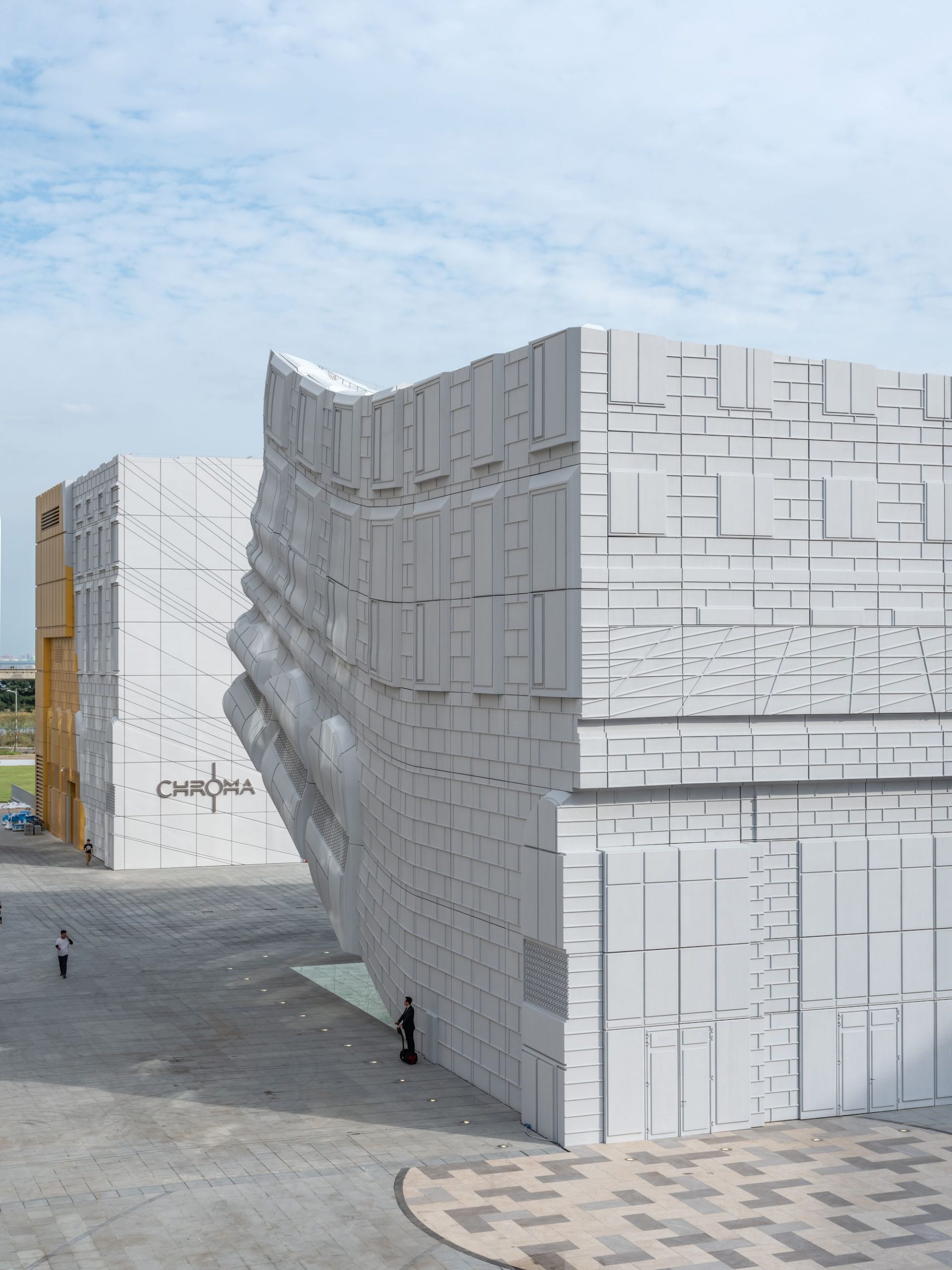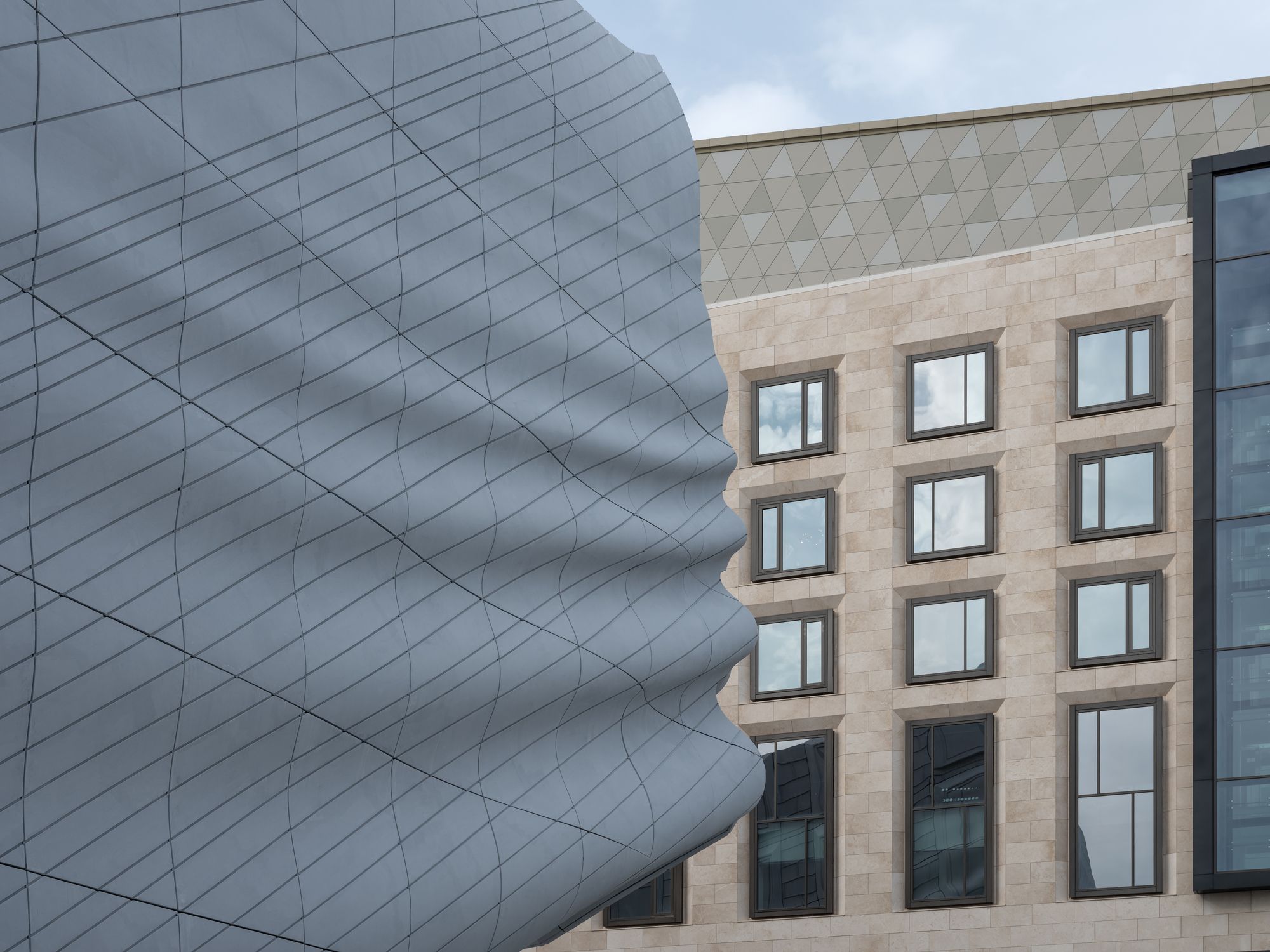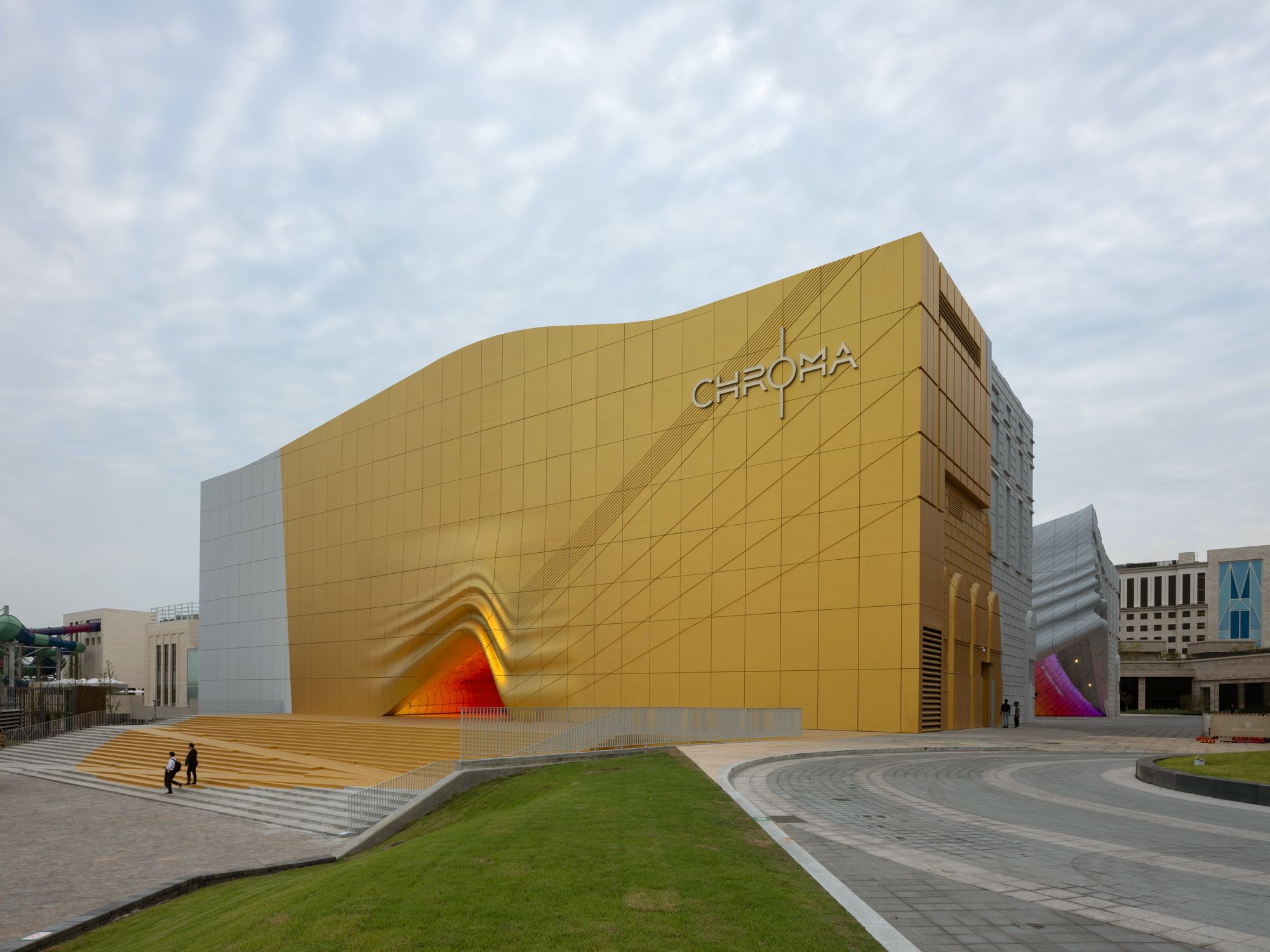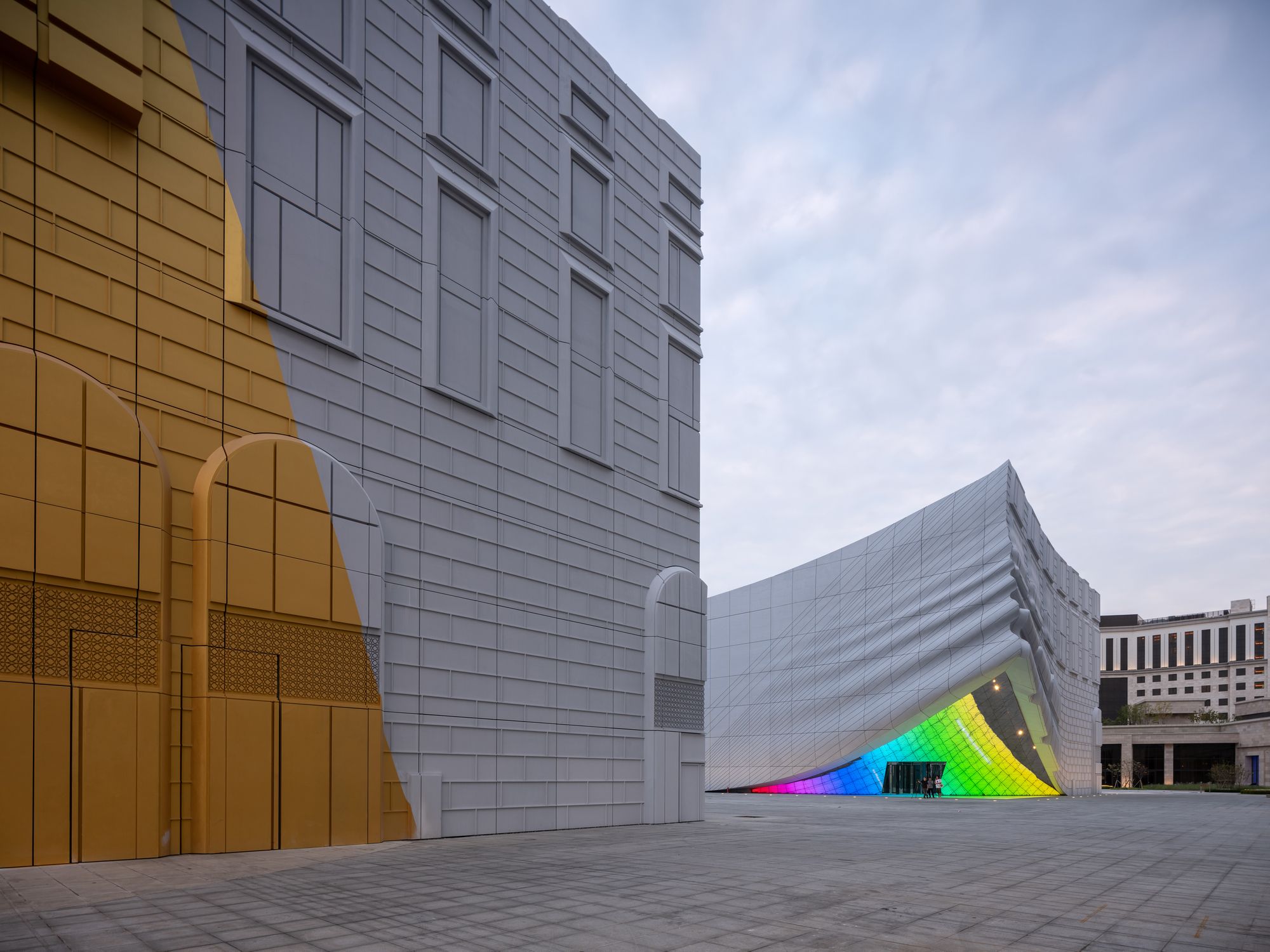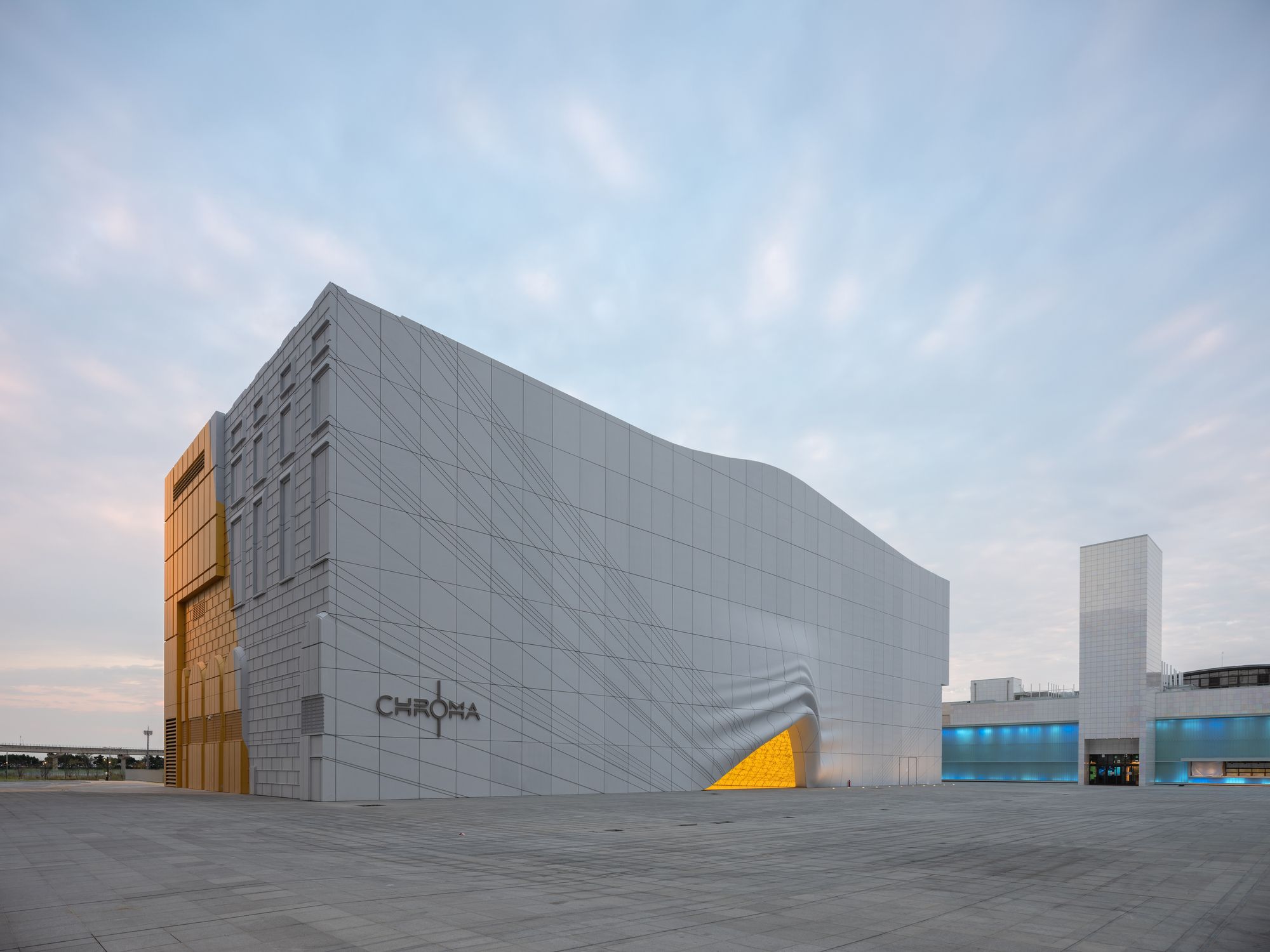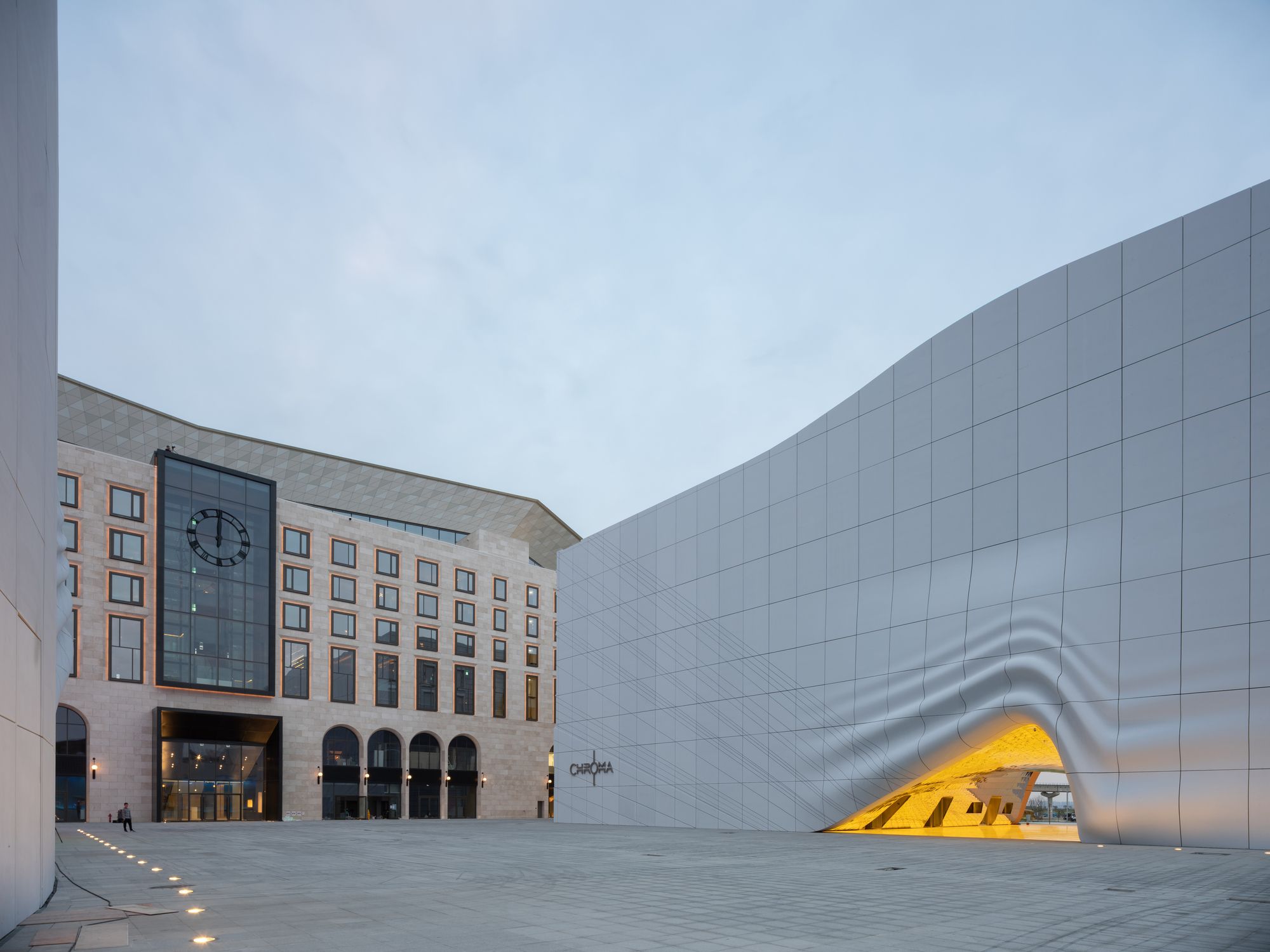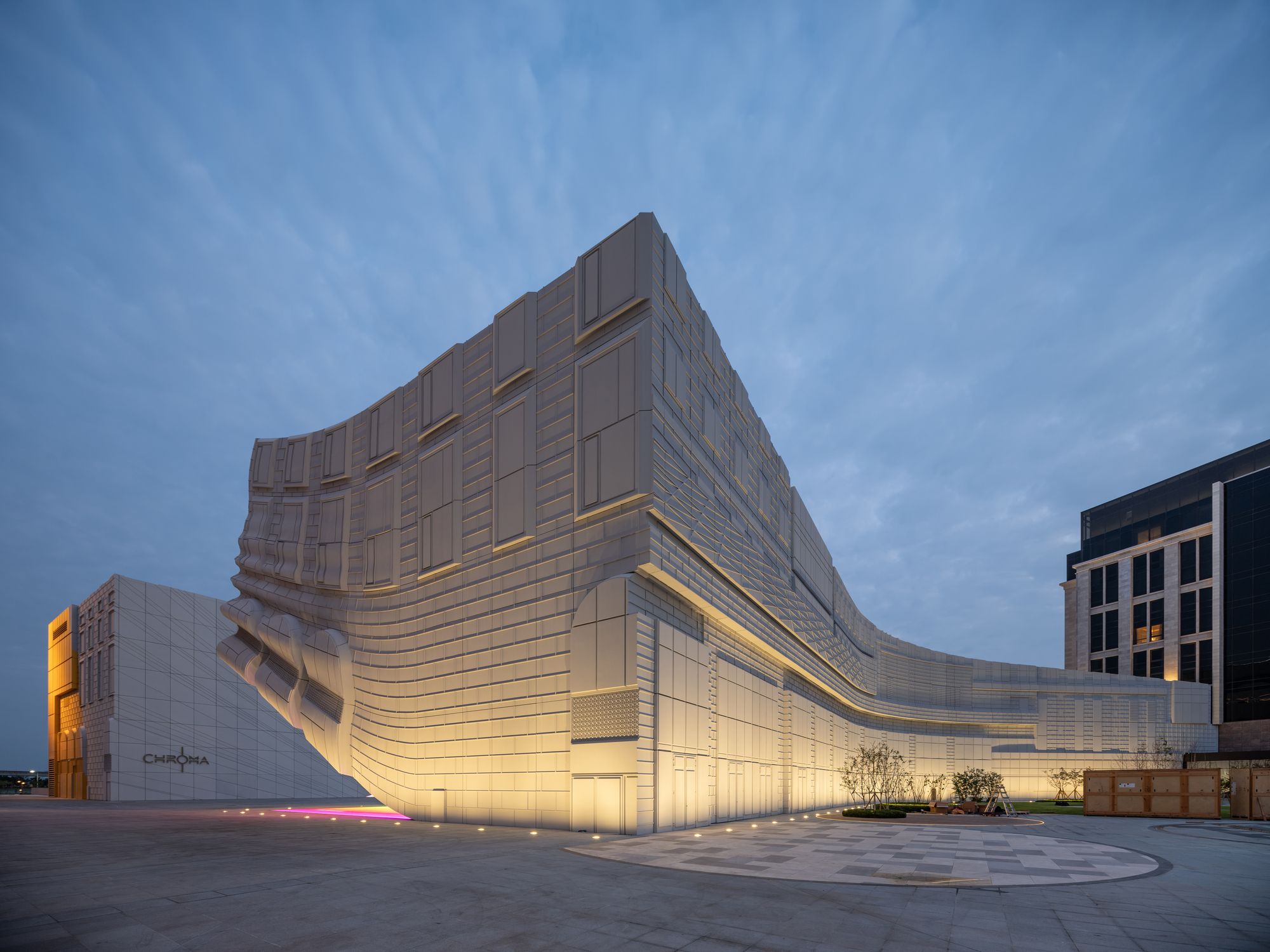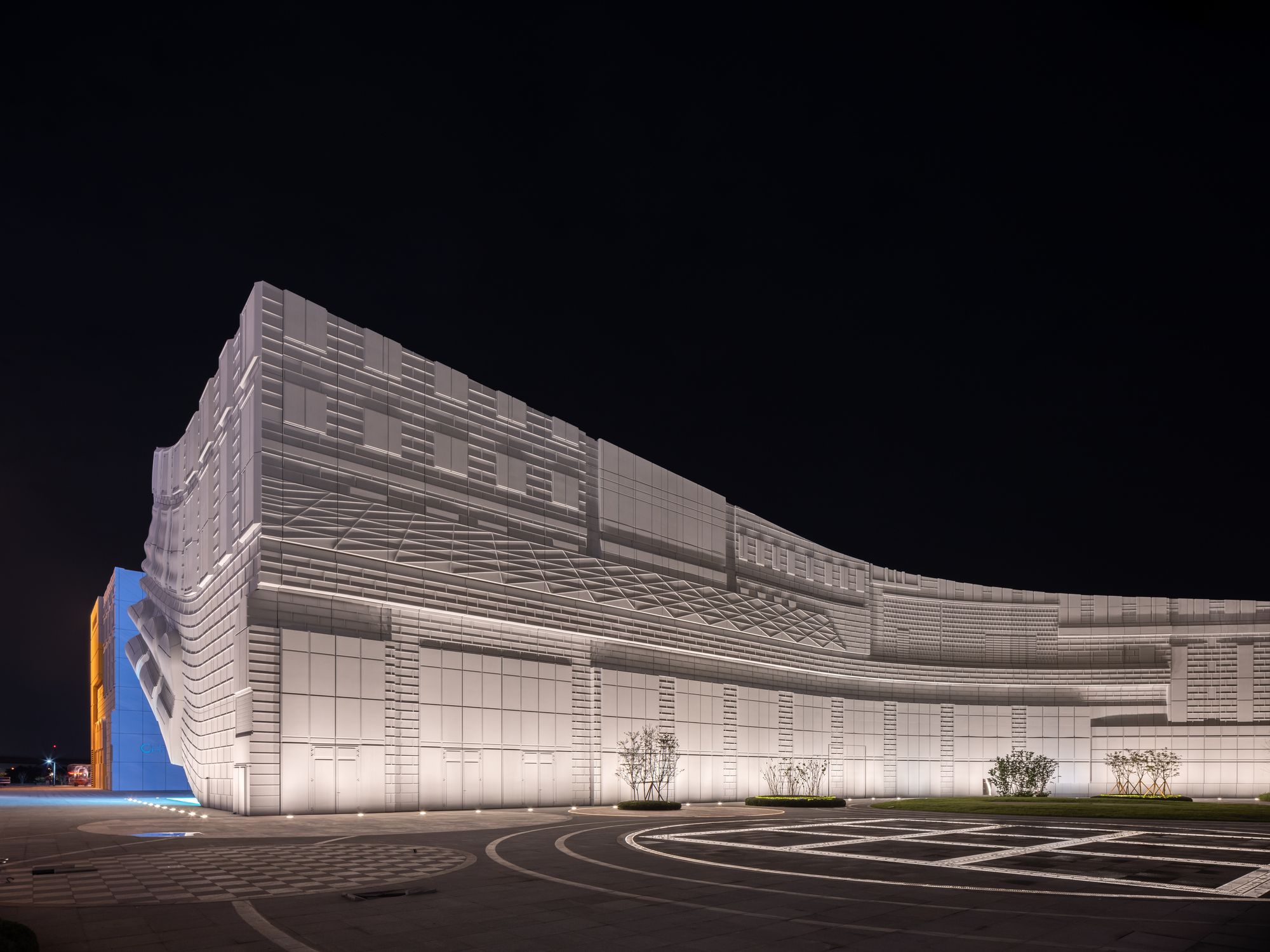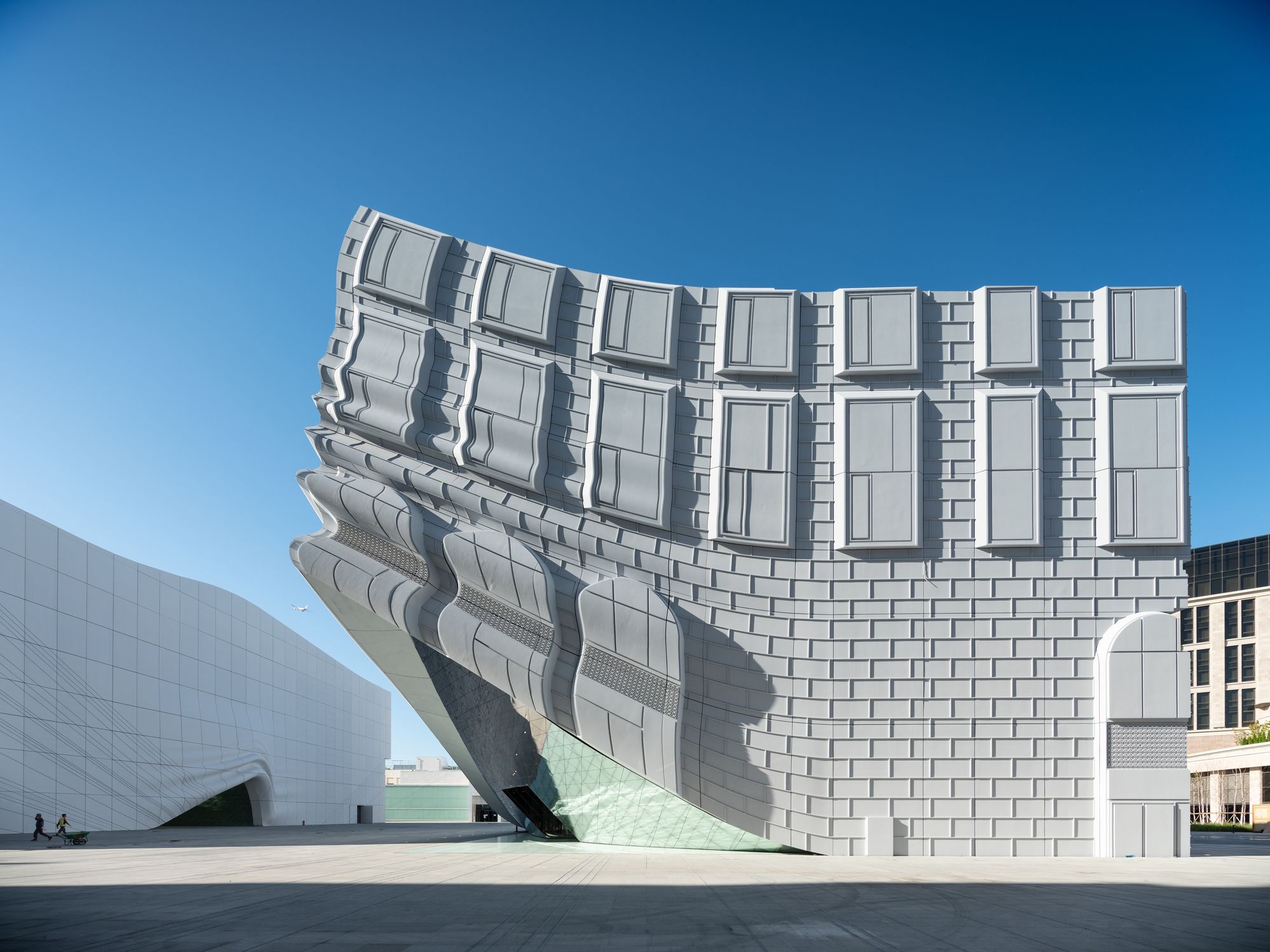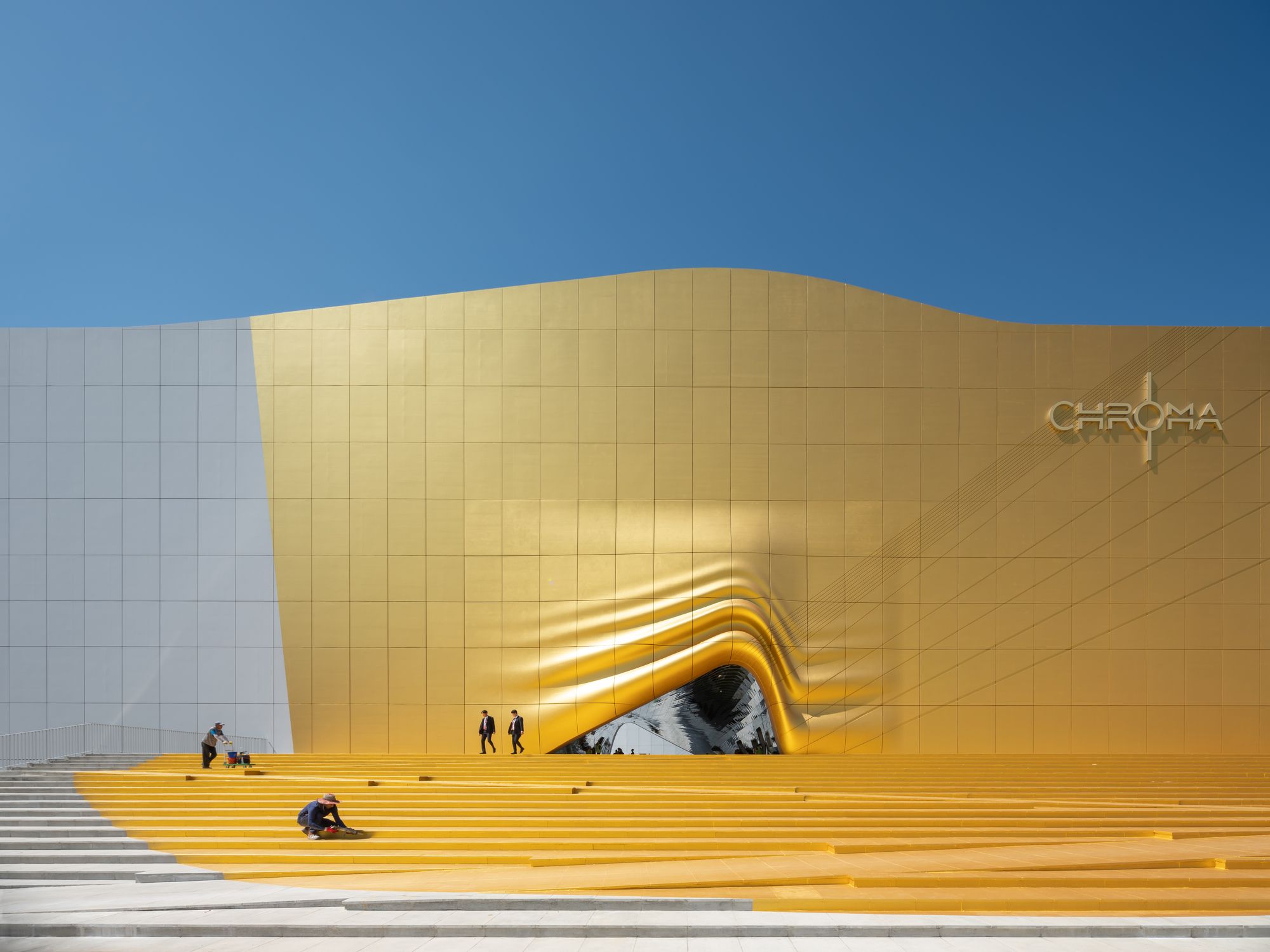Designed by MVRDV, the Imprint is a new 2-building art and entertainment complex constructed near the Seoul’s Incheon Airport. With a nightclub in one and an indoor theme park in the other building, these buildings have created quite the buzz.
The Imprint structures are windowless and feature 3 key design elements:
- Imprints of the facades of the buildings that surround it.
- Lifted entrances.
- Golden entrance spot at the corner of the nightclub.
The Imprint is part of the 6 building complex of Paradise City. Less than a kilometer from South Korea’s largest airport, the Paradise City complex will be providing entertainment and hotel attractions.
The client requested the buildings to be windowless but one that integrated with the other buildings in the complex. Given the function of the buildings, this doesn’t seem impossible. However, how can a building connect to its surroundings without openings in its facade? How can an expressive facade be built when the brief requires it to be windowless?
MVRDV’s designs achieve this by imprinting the facades of the surrounding buildings into its own facade. The neighboring facades are “draped” over the building form and plaza like a shadow.
Winy Maas, principal and co-founder of MVRDV, says “By placing, as it were, surrounding buildings into the facades of our buildings and in the central plaza, we connect The Imprint with the neighbors. This ensures coherence. Paradise City is not a collection of individual objects such as Las Vegas, but a real city.”
The facade of the building was constructed of glass-fiber reinforced concrete panels, to achieve the “imprint” of the surrounding buildings. 3,869 unique panels were created as the construction required the molds to be individually produced. MVRDV’s 3D modeling files from the design phase were used to create the panels of the facade of the building. After installation, they were painted white to emphasize the “relief” of the design.
“Two months ago most of the cladding was done and the client said, ‘this is an art piece. What is interesting about that is that they are looking for that momentum—that entertainment can become art or that the building can become artistic in that way. What, then, is the difference between architecture and art? The project plays with that and I think that abstraction is part of it, but it has to surprise, seduce and it has to calm down.” Winy Mass explained.
The golden spot of the nightclub is the eye-catching expressive element. It catches the attention of the passengers who land at the Airport. The golden color is achieved by painting the facade panel gold instead of white.
To create a more dramatic effect, the lighting of the facade of the building at night also emphasizes the gold spot. While the rest of the facade is lit from below, the gold spot is highlighted from above.
The facades are lifted up, like a curtain, to reveal the entrance doors. The mirrored ceiling and glass media floors under the “lifted up facade” increases the excitement of visitors.
“Reflection and theatricality are therefore combined,” concludes Maas. “With our design, after the nightly escapades, a Zen-like silence follows during the day, providing an almost literally reflective situation for the after parties. Giorgio de Chirico would have liked to paint it, I think.”
photography by © Ossip van Duivenbode
Courtesy of MVRDV
photography by © Ossip van Duivenbode
Courtesy of MVRDV
Courtesy of MVRDV
photography by © Ossip van Duivenbode
photography by © Ossip van Duivenbode
Courtesy of MVRDV
Courtesy of MVRDV
photography by © Ossip van Duivenbode
Courtesy of MVRDV
photography by © Ossip van Duivenbode
photography by © Ossip van Duivenbode
photography by © Ossip van Duivenbode
photography by © Ossip van Duivenbode
photography by © Ossip van Duivenbode
photography by © Ossip van Duivenbode
photography by © Ossip van Duivenbode
photography by © Ossip van Duivenbode
photography by © Ossip van Duivenbode
photography by © Ossip van Duivenbode
photography by © Ossip van Duivenbode
photography by © Ossip van Duivenbode
photography by © Ossip van Duivenbode
photography by © Ossip van Duivenbode
photography by © Ossip van Duivenbode
photography by © Ossip van Duivenbode
photography by © Ossip van Duivenbodephotography by © Ossip van Duivenbode
photography by © Ossip van Duivenbode
Courtesy of MVRDV
Courtesy of MVRDV


